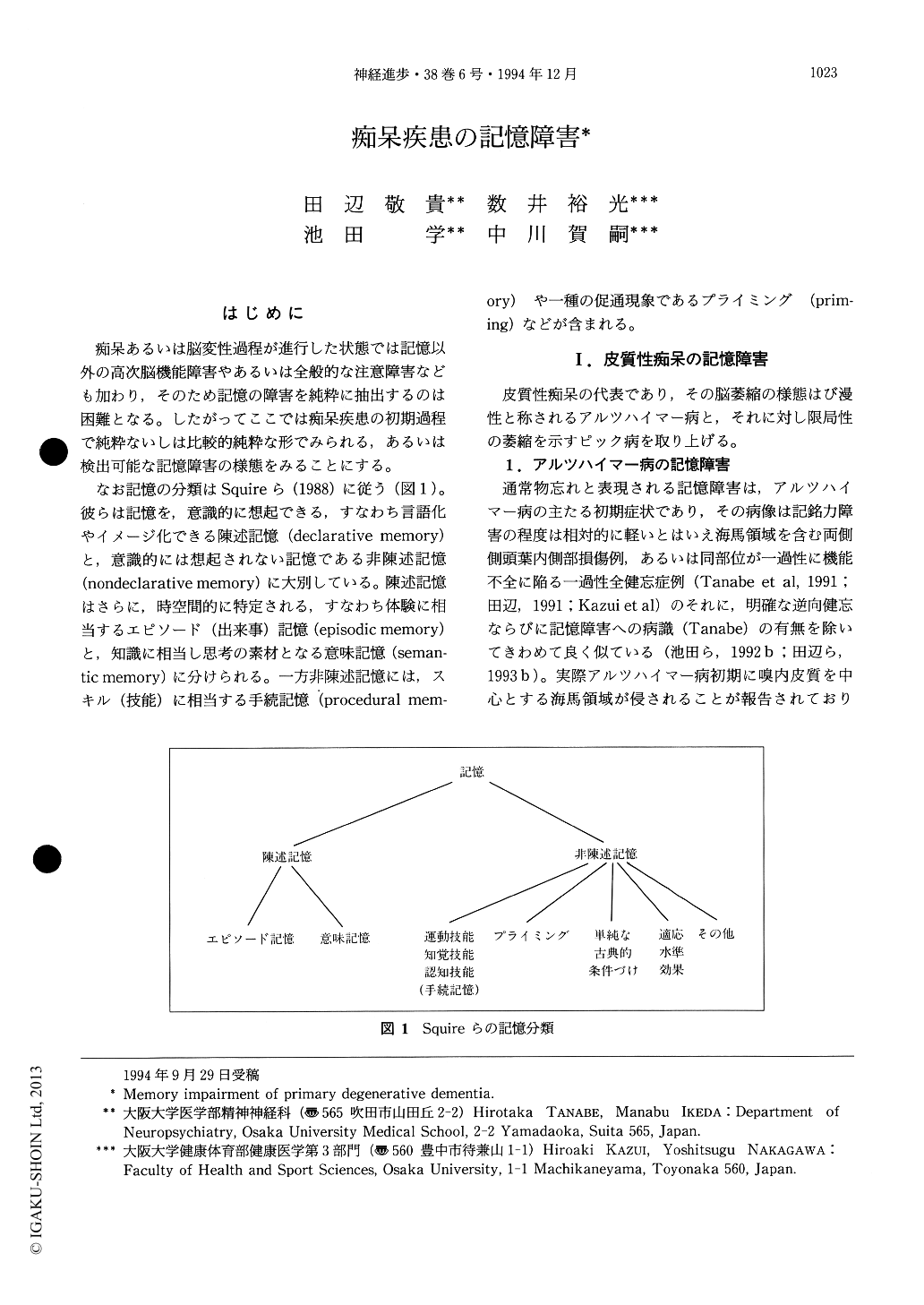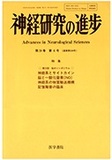Japanese
English
- 有料閲覧
- Abstract 文献概要
- 1ページ目 Look Inside
はじめに
痴呆あるいは脳変性過程が進行した状態では記憶以外の高次脳機能障害やあるいは全般的な注意障害なども加わり,そのため記憶の障害を純粋に抽出するのは困難となる。したがってここでは痴呆疾患の初期過程で純粋ないしは比較的純粋な形でみられる,あるいは検出可能な記憶障害の様態をみることにする。
なお記憶の分類はSquireら(1988)に従う(図1)。彼らは記憶を,意識的に想起できる,すなわち言語化やイメージ化できる陳述記憶(declarative memory)と,意識的には想起されない記憶である非陳述記憶(nondeclarative memory)に大別している。陳述記憶はさらに,時空間的に特定される,すなわち体験に相当するエピソード(出来事)記憶(episodic memory)と,知識に相当し思考の素材となる意味記憶(semantic memory)に分けられる。一方非陳述記憶には,スキル(技能)に相当する手続記憶(procedural memory)や一種の促通現象であるプライミング(priming)などが含まれる。
Memory deficits in the early stage of primary degenerative dementia were investigated in the light of the classification of memory systems by Squire & Zola-Morgan from the standpoint of anatomo-clinical correlation. The results indicated the following.
I. Cortical dementia
Declarative memory is affected in the context of preserved procedural memory which is a kind of nondeclarative memory.

Copyright © 1994, Igaku-Shoin Ltd. All rights reserved.


